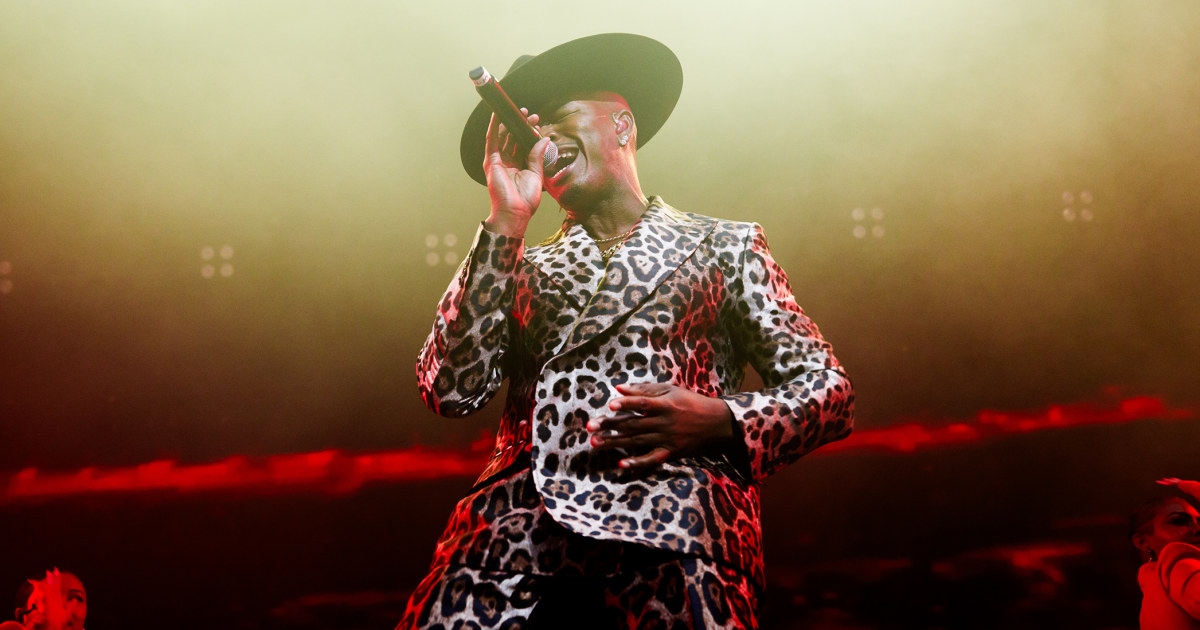World
Donald Glover Closes the Book on Childish Gambino With the Masterful ‘Bando Stone and the New World’: Album Review

Donald Glover doesn’t do anything by half, and the massive multifaceted project he’s launched for what he says is the final statement from Childish Gambino, the long-running alter-ego he rode to musical stardom, is no exception. “Bando Stone and the New World” is an album, a film and a sprawling world tour, which were all announced simultaneously back in April (along with another album, a finished version of “Atavista,” the nearly-complete set he’d quietly rush-released in the early days of the pandemic and re-released last May).
The film and tour remain to be seen, but if the “Bando Stone” album is any indication, Gambino is going out with a bang: It’s not only his best and most far-reaching musical project to date, with a brain-busting combination of musical styles and guests ranging from singers Jorja Smith and Amaarae to rappers Flo Milli and Yeat to alt-rock virtuosos Khruangbin. It’s also easily one of the top albums of the year.
We’d expect nothing less. Glover is so talented at so many things it doesn’t seem fair — rapper, singer, actor, songwriter, screenwriter, director, dancer, who knows what else — but it comes with a deep contrarian streak, which isn’t the only thing he has in common with another great contrarian, Prince. He makes blink-and-you-miss-it announcements to fans with no advance notice on livestreams that aren’t archived; “Atavista” was originally released as a stream on a one-off website for just 24 hours; he dropped his heavily coded video for his Grammy-winning song “This Is America,” in the middle of his “Saturday Night Live” double-duty hosting-musical guest stint in 2018. And although Glover’s predilection for being, as Tyler, the Creator once put it, “all secret and cryptic like a dickfuck” can lead people to “miss out on some really cool shit,” his work nearly always rewards the time and patience it takes to search or wait for it.
Still, killing off an alter-ego is a strange conceit. David Bowie abruptly and publicly assassinated his Ziggy Stardust character onstage just as his meteor-like rise was peaking; Eminem, at 51, has hatched a complicated death plot for his juvenile, quarter-century-old Slim Shady alter-ego that is apparently ongoing. Despite playing Gambino off in such an elaborate fashion, Glover is low-key about his reasons: “It really was just like, ‘Oh, it’s done,’” he told the New York Times recently. “It’s not fulfilling. And I just felt like I didn’t need to build in this way anymore.” (However, it seems a fair bet that Glover turning 40 last year had something to do with it.)
All that backdrop seems to have little obvious impact on “Bando Stone,” and apart from some brief bits of dialogue between songs (seemingly from a plotline about a comically squabbling family lost in a jungle), advancing a plot doesn’t either. Although the meaning behind the lyrics will likely become clearer once the film is released, intriguing lines float by like “I’mma make a billi’ like I’m Eilish,” “I got a ego ’bout as big as Lake Tahoe,” and “Shoot a motherfucker, I’m the new Spike Lee/ Everybody Satan and I’m G-O-D.” But the album is such a grand slam of musical styles that its concepts wouldn’t be the first thing you’d notice anyway.
Over the course of 17 songs and an hour, it leaps between styles and moods dramatically and at times abruptly — the otherworldly electronic haze of “We Are God” cuts immediately into the emo-pop of “Running Around” — but also surprisingly smoothly. There are power chords on “Lithonia”; “Steps Beach” is a sweet, Stevie Wonderesque acoustic ballad with a tinkling electric piano and gentle backing vocals; there’s an orchestral, almost Marvin Gaye-esque idyll on “No Excuses.” There are also two full-on indie-pop songs with “Real Love” and the emo-ish “Running Around”; and forays into alt-R&B with the Chloe-featuring “Survive” and “In the Night” (a tag-team with Jorja Smith and Amaarae); there’s even one sung by his eldest son, 8-year-old Legend. Fans may be disappointed that there’s nothing as sumptuously vintage-R&B as his 2016 classic “Redbone,” but to be fair, that would be hard to top.
He’s also rapping much more than he has on recent albums, in a style that sometimes recalls both Kanye West’s early material and his abrasive “Yeezy” era. But the album’s most brain-busting moment comes on the Kendrick Lamar-esque “Yoshinoya,” the middle section of which features Glover rapping hard over a thudding beat and a wild looped vocal snippet. There are traces of African and Caribbean rhythms and vocals throughout, and it all climaxes with the closing track, the epic “A Place Where Love Goes,” which combines a menacing rap with an inane chanted loop of children singing “We don’t care about the party/ We just want to dance” and even a Daft Punk-esque vocoder’ed segment and an anthemic chorus.
Not surprisingly, the album features dizzying dozens of diverse collaborators, rarely for more than a song or two, but most frequently are his longtime co-producer Ludwig Goransson, Dahi (Kendrick Lamar, Drake), “Sir Dylan” Wiggins (the Weeknd, SZA), Michael Uzowuru (Frank Ocean, SZA), and Tyler Johnson (Harry Styles, Miley Cyrus), with Max Martin, Steve Lacy, saxist Kamasi Washington, singers Willow Smith and Syd and loads of others dropping in; “Got to Be” even samples British electronica titans Prodigy. It’s also notable that Glover has chosen to collaborate with young or rising artists like Amaarae, Foushee and Khruangbin, rather than the superstars he could have enlisted.
In many ways, the hard-hitting “Yoshinoya” — named after a century-old Japanese restaurant chain that Gambino uses as a symbol for his longevity — is the centerpiece of the album, and is pretty clearly autobiographical in ways that seem to fall outside the film’s storyline.
“This is a code red for old heads
Who never liked my short shorts and pro-Keds …
Told me that money make you lonely, it ain’t so bad
N—a’s jokes are so dad…
Sold some Apple stock to buy a farm, I needed to stunt
I told ’em take the back-end points, he wanted to front
Now his career’s in a blunt …
These n—as almost fifty and they dressin’ like a hype beast
Used to get the peach milkshake and add the eight-piece
White boy throwin’ dirt on my name for the think piece…
Put they hands on a woman for the clout but said I’m wildin’
Death before dishonor
On my mom like Keke Palmer
I’m allergic to the drama, you saw me and Tyler…
Fuck with my kids, you fuck with your life
You fuckin’ these hoes, I’m fuckin’ my wife.” (Courtesy Genius.com)
Is that Gambino’s parting shot? If so, it’s a strong one, and although he doesn’t name names, if anyone takes exception, he’s got a whole tour to respond even if this is his last album.
But presumably “Bando” is just the curtain call for the alter-ego Glover rode to stardom, an admission that such things aren’t for grown-ass dads, and hopefully he’ll continue his musical career’s progression for years to come. “Bando” is a mind-blowingly diverse and versatile album that finds him adopting a huge number of styles convincingly — and actually lives up to the drum-roll that introduced it.









